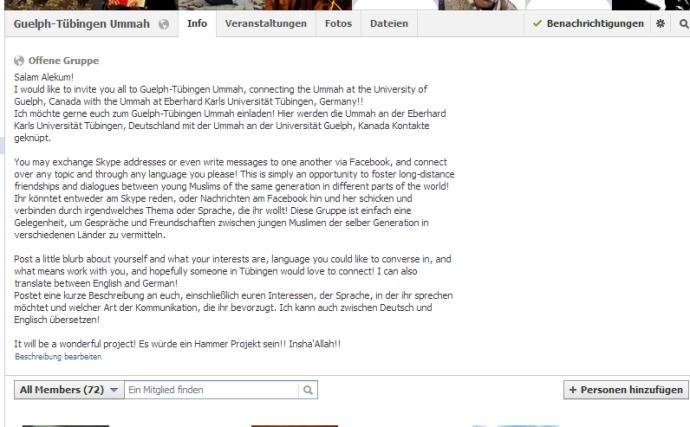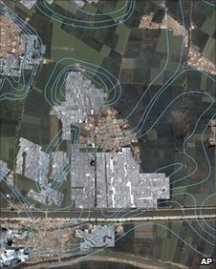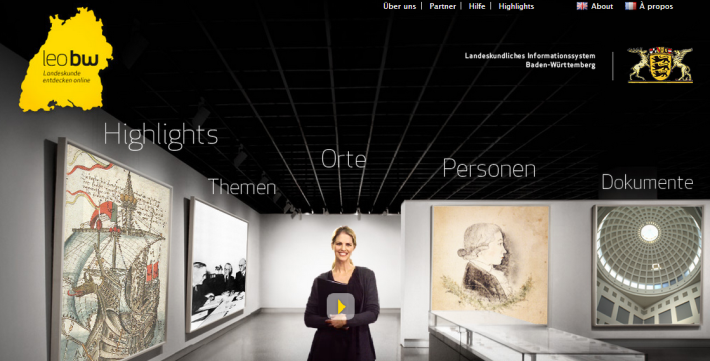
Hey Everyone!
Even though it is not related to my final project or any of our weekly assignments per se, I thought I could share with you all a project I am undertaking using technology (social media). I studied this past semester at the Zentrum für islamische Theologie at Eberhard Karls Universität Tübingen, in Tübingen Germany. At Guelph I am a History Major with an interest in Middle East studies, and in order to meet people from Middle Eastern and Muslim societies, I joined the Guelph MSA (Muslim Students’ Association). When I came back from studying at the Centre for Islamic Theology, I wanted to connect my young Muslim friends in Germany with those in Canada. I noticed that while they spoke completely different languages and had different ethnic backgrounds, they had many similar experiences, dreams, questions about their counterparts in other countries, and ideas about themselves and their place in the world. I thought it would be a great idea to use my own resources and create a simple platform for them to connect with one another. The word “Ummah” in the title, means “community” in Arabic, and within the Islamic faith, it refers to the worldwide community of Muslims.
I created the group a week and a half ago, and within two days, the group had over 60 members from both Canada and Germany. I figure it would be a good idea for the participants to get used to the group platform, discuss general topics in a public forum with one another, and then hopefully take it upon themselves to connect personally with one another. I noticed that there are more young women who have joined than men, and the ones which have been most out-going in person on both sides tend to have found each other without any problems online!! haha I also have a few invites from other universities in Canada and Germany.
I would like to track where discussions lead to and what kind of trends develop. I am really interested in Migration, Immigration, and how socieities and communities change over time. I am also particularly interested in the idea of “minority identities” within a society. That is what has attracted me to the Chapbooks assignment at the MacKinnon Library. Even though the books do not specifically deal with migration, they do tell a narrative and paint a snapshot into the Scottish cultural identitiy of the many immigrants to Canada and other countries across the world brought. It also illustrates the world of a minority society within the United Kingdom.
Similar to the “general culture” of Islam* (let’s say, Sunni Islam, the largest form of the religion practised worldwide), people have migrated from Muslim-dominated societies to Christian-dominated states, adapting to new (in this case, Germanic) languagues and Eurocentric cultures. They have changed according to their surrounding societies, however still bring forth elements such as faith, religious practices, mothertongues, dress, food, world views etc which still connect them, allowing people who have never met, and often don’t even speak the same language, to connect based on a fluid and open form of kinship. I feel that both the Chapbooks project and my experience connecting these two circles of young Muslims I am connected with will hold certain lessons and commonalities. For example, literature and lectures from famous Muslim artists and Imams, or famous Qur’anic quotes and stories (Hadith) from the Prophet Muhammad will be known to young Muslims born in both Canada and Germany, in Arabic, Turkish, German, English, French etc and likewise, certain Scottish songs, myths, traditions etc will have been maintained for several generations of Scots, whether they were living in Scotland, Canada, South Africa, New Zealand or whereever else they moved to!!

